Directory
Peggy DesAutels
Professor Emerita
Emeritus
College of Arts and Sciences: Philosophy
Degrees
- Ph.D., Washington University in St. Louis
Profile
Dr. DesAutels specializes in ethical theory and moral psychology. She began teaching at the University of Dayton in 2001. Prior to coming to the University of Dayton, she served as assistant director to the Ethics Center and assistant professor of philosophy at the University of South Florida.
Faculty perspective
"Most moral theory is impossible to apply to our actual lives. In my research, I argue that a good moral theory should provide useful norms for our day-to-day moral perceptions, deliberations, choices, and practices. It should accommodate human cognitive constraints and respond to the complexities of actual experienced lives. In other words, our moral theories should be psychologically and socially realistic. Our moral theories and norms must also be responsive to the fact that we live in a society in which some are systematically disadvantaged because of their gender, race, or class.
In order to provide realistic and non-idealized moral norms, I draw on contemporary moral theory, feminist theory, and advances in social psychology, cognitive science and neuroscience. I have published three co-edited volumes: Feminists Doing Ethics, edited with Joanne Waugh; Moral Psychology: Feminist Ethics and Social Theory, edited with Margaret Urban Walker; and Global Feminist Ethics, edited with Rebecca Whisnant.
My recently published articles and book chapters are also committed to a non-idealized approach to moral theorizing. In my piece, "Resisting Organizational Power" (in Tessman’s Feminist Ethics and Social and Political Theory: Theorizing the Non-Ideal), I stress that there is seldom an ideal moral outcome for whistleblowers, since in many cases whistleblowers become psychologically devastated and morally incapacitated from doing "the right thing." This is even more likely to be the case for women whistleblowers. In “Moral Mindfulness,” I emphasize that even those with the best of moral intentions may miss that a situation calls for a moral response. I draw on research in social psychology to show that we often fail to notice moral situations, because our thoughts and behaviors are influenced subconsciously or overtly by social contexts. In "Musings: Experimental Philosophy," I use humor to make a serious criticism of philosophers’ recent attempts to incorporate classroom thought experiments and their students’ “intuitions” into their own philosophic writings. And in "Sex Differences and Neuroethics," I examine recent neuroscience research on sex differences and recent research on what brains are doing when making moral judgments. The result is what I term "feminist neuroethics." I point out that differing hormones in men and women may result in differing ways of incorporating emotions into moral judgments. But I also emphasize that emotional and cognitive differences between men and women are slight and merely “on-average” differences, if they exist at all. Finally, my piece entitled, "Is the Climate any Warmer for Women in Philosophy," combines my interests in cognitive science and philosophy in a slightly different way. It explores why only twenty-one percent of tenure-line faculty in philosophy are women. Are women’s brains less fit for philosophical thinking? Or is something within the culture and practice of philosophy contributing to the low numbers of women in the field? Because there is no neurological evidence that women’s brains are less capable than men’s of doing philosophy, I argue that we need good demographic and climate data in order to identify what aspects of the philosophic culture most need to be addressed and change.
I recently served as a social science research leader on a National Science Foundation (NSF) ADVANCE LEADER grant. This $2.5 million five-year grant was awarded to the consortium consisting of University of Dayton, Wright State University, Central State University, and Air Force Institute of Technology (AFIT). It was intended to promote institutional change to better recruit and advance women in Science, Technology, Engineering, and Math (STEM) fields. My role in this grant was to train equity advisors and educate STEM chairs and faculty throughout the consortium on implicit bias and on best practices tied to recruiting, retaining, and advancing STEM women faculty. I was part of the social science research team for this grant (researching best practices for recruiting and advancing STEM women faculty). I drew on social science research, neuroscience, and feminist theory in my presentations and writings (e.g. “Cases: Where are the Women”) in this area."
Professional activities
- Chair of the American Philosophical Association (APA) Committee on the Status of Women (CSW). Visit the APA (www) >>
Research interests
- Ethical theory
- Moral psychology
- Feminist ethics
Selected publications
Books
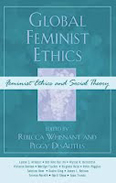 |
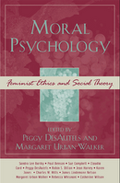 |
 |
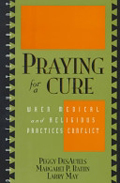 |
2007. Global Feminist Ethics, editor with Rebecca Whisnant, Rowman and Littlefield.
Amazon.com (www) >>
2004. Moral Psychology, editor with Margaret Urban Walker, Rowman and Littlefield.
Amazon.com (www) >>
2001. Feminists Doing Ethics, editor with Joanne Waugh, Rowman and Littlefield.
Amazon.com (www) >>
1999. Praying for a Cure: When Medical and Religious Practices Conflict, with Margaret P. Battin and Larry May, Rowman and Littlefield.
Amazon.com (www) >>
Journal Articles
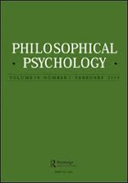 |
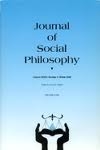 |
 |
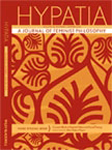 |
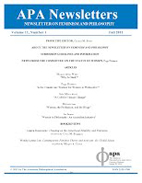 |
"Moral Perception and Responsiveness," Journal of Social Philosophy 43.3, Sept 2012.
"Is the Climate any Warmer for Women in Philosophy?" APA Newsletter for Feminism and Philosophy, 11.1, Sept, 2011, pp. 4-7.
Google Document (www) >>
"Sex Differences and Neuroethics," Philosophical Psychology 23, 2010, pp. 95-111.
Google Document (www) >>
"Musings: Folk Feminist Theory: An Experimental Approach," Hypatia: Journal of Feminist Philosophy 23.4, Oct-Dec issue, 2008.
Google Document (www) >>
"Psychologies of Moral Perceivers," Midwest Studies in Philosophy 22, 1998, pp. 266-279.
"Christian Science, Rational Choice, and Alternative World Views," Journal of Social Philosophy 26, 1995 (with responses from Margaret Battin and Joan Callahan), pp. 89-122 .
"Two Types of Theories: The Impact on Churchland’s ‘Perceptual Plasticity’," Philosophical Psychology 8, 1995, pp. 25-33.
Book Chapters
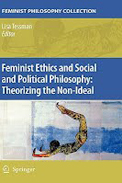 |
 |
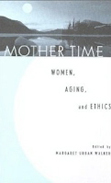 |
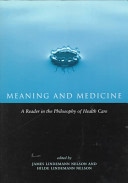 |
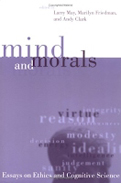 |
"Resisting Organizational Power" in Lisa Tessman, ed., Feminist Ethics and Social Political Theory: Theorizing the Non-Ideal (Springer, 2009) pp. 223-226.
"Moral Mindfulness," in Peggy DesAutels and Margaret Urban Walker, eds., Moral Psychology: Feminist Ethics and Social Theory (Rowman and Littlefield, 2004) pp. 69-81.
"Religious Women, Medical Settings, and Moral Risk," in Margaret Walker, ed., Mother Time: Women, Aging, and Ethics (Rowman and Littlefield, 1999).
"Christian Science, Rational Choice, and Alternative World Views," in Hilde Lindemann Nelson and James Lindemann Nelson, eds., Meaning and Medicine: A Reader in the Philosophy of Health Care (Routledge, 1999) pp. 321-331.
"Gestalt Shifts in Moral Perception," in Larry May, Marilyn Friedman, and Andy Clark, eds., Mind and Morals (Bradford/MIT Press, 1996) pp. 129-143.
